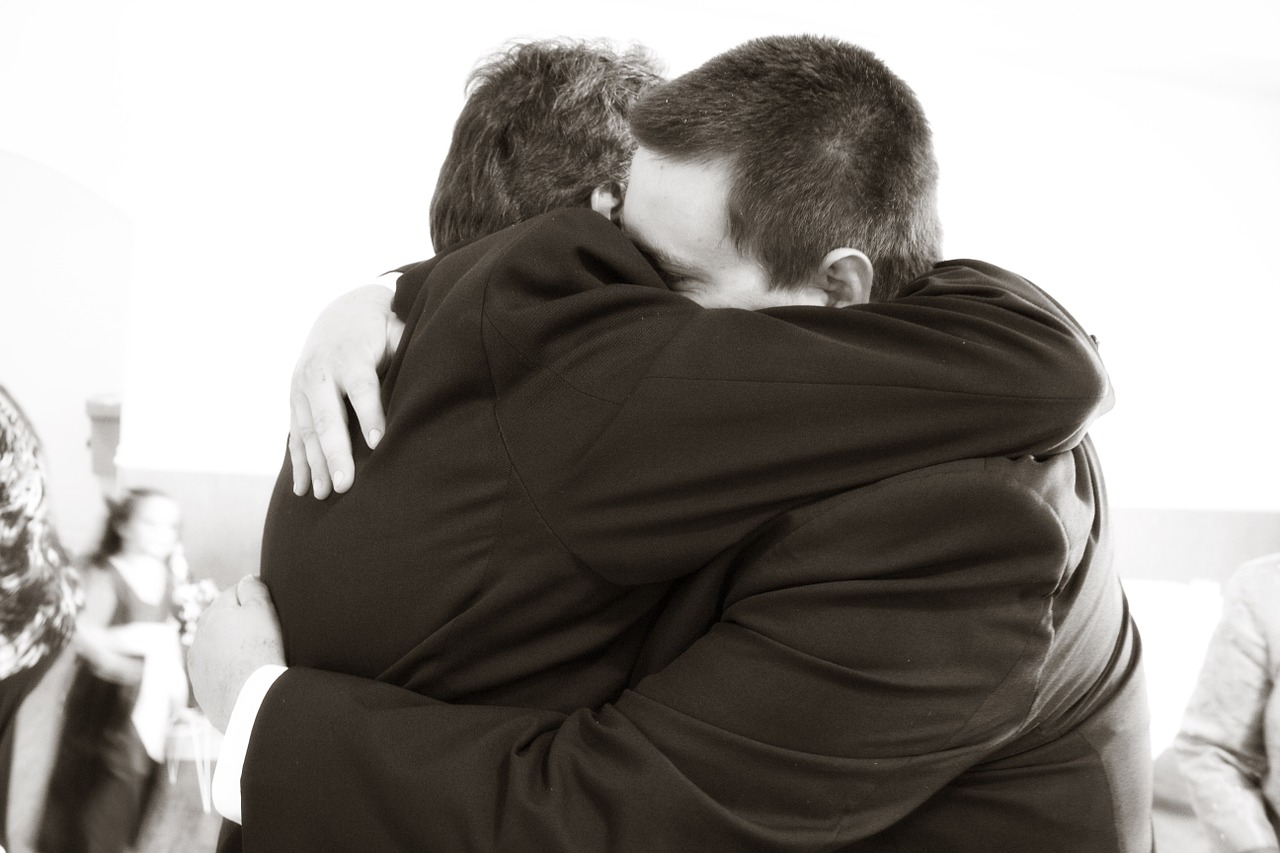Blog
Reframing Evangelism
Wednesday, October 14, 2020
As has been announced, today at 3, Jason is going to facilitate a brainstorming session in Room 10 about evangelism. I intend to be there, and I would encourage everyone else here to attend as well.
This morning, though, I would like us to consider evangelism more generally, not just what we should do, but how we should think about it. I am sure that when at least some of you figured out what the sermon topic was going to be, you said to yourself “Oh, great. Evangelism,” and sank down a little deeper in the pew. For many Christians, evangelism sermons are guilt-trip sermons. Here is this commandment, and we’re not keeping it, so anything the preacher says about evangelism is going to make us feel bad and not change our behavior.
That’s not my intention this morning. I’m not here to beat anybody up. Instead, I want to help. Let me suggest that maybe part of our struggles with evangelism is the way that we think about it, that the same fear and guilt that all those evangelism sermons stir up is part of the problem. Today, then, let’s spend a few minutes reframing evangelism.
First, I think, we need to UNDERSTAND OUR SITUATION. Consider what Jesus has to say about the original context of the gospel in Matthew 24:4-14. In context, He is talking about the events that will lead up to the destruction of Jerusalem in 70 AD, and it is obvious that the road is going to be rough. There are going to be wars, earthquakes, famines, and persecution. However, in this span of 40 troubled years, the gospel is going to be preached to all the nations.
We know from the rest of the New Testament that during that time, the gospel saw great success. Now, it might seem strange that the gospel was so successful in such troubled times, but let me suggest to you this morning that the gospel was successful because the times were troubled. When everything else was falling apart, people were more disposed to turn to God.
Today, the times also are troubled. Many of our certainties about life have been upended. We don’t know what the future holds. People are afraid. Many are turning for answers to politics, just as many people did in the first century. However, I think those political answers will disappoint, or worse, just as they did 2000 years ago.
That leaves the field wide open for the gospel. In troubled times, God is the best and only answer. I admit that I’m uncertain about the future too, but ultimately, I’m not worried about it, because I know whom I have believed. God is going to take care of me, He is going to take care of all of us, and when others come to Him, He will take care of them too. We are the only people who can promise peace and security and guarantee that it will happen, and if you don’t think that’s powerfully appealing right now, you don’t understand people at all!
Second, let’s spend some time UNDERSTANDING OURSELVES. As an entrée into this topic, let’s look at Philippians 4:15-16. Here, we learn that of all the churches Paul established, the church in Philippi was the only one to support him during his second missionary journey. They were a generous church when others weren’t.
From this, I want to introduce an idea that is both a duh point and incredibly important. Churches are different. Just like people have different strengths and weaknesses, churches have different strengths and weaknesses too. In fact, it’s fair to say that churches have different personalities and identities too. Even if a church does pretty much the same thing on Sunday morning as another church, that different personality is going to shape the way it operates in a million tiny ways.
Since I came here, I’ve invested a lot of thought in figuring out the Jackson Heights church personality. Lauren can testify that when we were on vacation a couple weeks back, I spent hours trying to pin it down. I think the best way to sum it up is to say that the Jackson Heights church is a gracious church. As a whole, this church really likes helping people and being nice to them. That is our core identity.
Again, this shows up in a million tiny ways. It shows up in the way that we welcome visitors. It shows up in the way the members are so generous to people who come through the door wanting money. It shows up in the way we try to bring new members in and make them part of the group. And so on.
Now, I know that some of you long-time Jackson-Heightsians are listening to this and saying, “So?” Trust me when I say that other churches are not like this. Things this congregation takes for granted don’t happen everywhere else. They make us distinctive.
I say all of this for two reasons. First, it is a powerfully attractive personality to have. Who doesn’t want to be part of a gracious group of people that will treat them well and really likes helping others? Second, once we’ve identified our strengths, that will help us to play to our strengths and be as effective as possible.
With this in mind, let’s consider the interplay between THE GOSPEL AND MERCY. Here, look at the words of Jesus in Luke 10:36-37. This is the punchline of the parable of the good Samaritan. Jesus’ message is clear. We choose who our neighbors are, and we choose by showing mercy to them.
The parable of the good Samaritan isn’t exactly a secret. I would imagine that there are many in this room who have helped a stranded stranger or a man who was down on his luck because they wanted to go and do likewise. I think that’s wonderful! I hope that those of you who have been doing this will continue to do so and that those who haven’t will start.
However, I think that the most important application of the parable is one that we perhaps haven’t thought about, and that’s evangelism. Feeding the hungry is an act of mercy. Caring for the sick is an act of mercy. How much more, then, is introducing the lost and hurting to Jesus also an act of mercy?
Yes, I know that proclaiming the gospel is a commandment, but maybe it will help us be more vocal if we don’t think of the commandment as our motivation. If the only reason we’re reaching out to people in the world is so that God won’t be mad at us, that can only make us self-centered and self-conscious. Really, that kind of evangelism is about us, not them.
By contrast, mercy is other-centered and not at all conscious of itself. We are merciful because we see the plight of others and respond. There are lots of people here who are great at seeing others’ needs and then helping, and that’s exactly what evangelism is.
Don’t go through life, then, with this little voice in the back of your head saying, “I have to tell others about Jesus, or I’m letting God down.” Go through life looking for people who need help: the neighbor who has lost their mom, the co-worker who is going through a divorce, the friend whose kids have gone off the rails.
Then, we. . . help them. We tell them that we’re hurting with them, but that we know a place where they can go where people will love and care for them, where they can find a spiritual family and a spiritual home. And if they think Christians are great, just wait until they get to know Christ!
Our Widow's Mite
Tuesday, October 13, 2020
When it comes to their service to the Lord, many Christians feel inadequate. They see other brethren who appear to have it all together in their service to God—their families are perfect, their smiles undimmed, their spiritual record spotless. What’s more, such Christians also often seem gifted beyond the norm. They serve effortlessly and well in any number of ways.
If we find ourselves troubled by such thoughts, it helps to turn to the story of the widow’s mite in Mark 12:41-44. In earthly, external terms, the widow looks like a spiritual failure too. Next to the massive contributions made by the wealthy, her two small coins looked like a rounding error. She wasn’t helping with the upkeep of the temple in any meaningful way. If she had stayed home that day, nobody but Jesus would have noticed the difference.
However, it is the widow and not the wealthy benefactors whom the Lord praises. They gave what they had left over, but she gave what she had. God wasn’t terribly concerned with the state of the temple’s finances, but He was very concerned with the state of the donors’ hearts. In His eyes, it was the one who gave almost nothing in earthly terms who shone the most brightly.
Today, it is both reassuring and alarming to realize that God judges us in the same way. 2000 years later, He still is not particularly concerned with externals. He is not impressed by the most transcendent talents among His people. If somebody can sing like David or preach like Apollos, it’s only because He made them that way.
The same is true for riches and poverty. If a Christian comes from a wealthy family, that’s a gift from God. Likewise for the Christian who is born with business acumen or abilities that employers value highly. We can squander such gifts or use them wisely, but even in the latter case, the credit belongs to God.
In His eyes, the important question is not what we have. It’s how we use it. Even if we are not very rich or not very smart or not very talented, we can be every bit as pleasing to Him as somebody who is extraordinarily smart and rich and talented.
Sure, the fruit we bear may be insignificant in comparison to the fruit they bear. However, just as the widow’s sacrifice could not be rightly measured by the surplus of the wealthy, our labor for the Lord cannot be measured by anyone else’s labor. Maybe that smart, rich, and talented guy has been coasting for 20 years, and God is pure sick of getting only what is convenient from him!
We don’t know, of course, and it’s not our place to judge anyway. Instead, we should worry less about what others are doing and focus on our own service. “Give what you have,” does not require more from us than we have to give. However, neither does it require less.
Christians Who Work
Monday, October 12, 2020The other day, some friends asked me if I struggled with burnout as a preacher. I replied that it made a huge difference to work with a congregation in which other Christians did things on their own initiative so that the preacher didn't have to do everything himself. Indeed, the Jackson Heights narrative yesterday was dominated by members who weren't preachers, elders, or deacons who nonetheless decided to step up, take on work, and encourage others to do the same.
Two thoughts:
- I am so thankful for all the "ordinary Christians" at JH who see an opportunity to do good and then do it. Your work glorifies God. May He bless you with strength and perseverance!
- It's become trendy to express concern for ministers during the COVID siege. If you really want to help your preacher, be a plus Christian. Don't wait for the church leadership to do something. Don't wait for the church leadership to tell you to do something. You already have a Bible. Live it out!
God of all Comfort
Friday, October 09, 2020
God of all comfort, heed
Us as we cry in need;
Never conceal Your face;
Hear us with patient grace.
Daily we struggle on,
Pressed till our strength is gone;
Fearful, we feel alone;
Do not forsake Your own!
God of all comfort, bring
Balm for our suffering,
Mercy amid distress,
Song for the wilderness.
When heart and spirit fail,
Still will Your might prevail;
Through You, our eyes will see
Healing and victory.
God of all comfort, teach
As You are kind to each;
Through Your compassion, show
Mercy for others’ woe.
When they are faint with grief,
Help us to bring relief,
Sharing Your comfort too
As we were taught by You.
They Wrote What They Saw
Wednesday, October 07, 2020
During our week and a half of vacation, we drove for more than 3000 miles. About 400 of those miles were through the state of Nebraska. I am sure that Nebraska is a great state for growing corn in, but when it comes to scenery, I’ve seen better. There’s not much to look at but corn and roadside signs.
This being Nebraska, a fair percentage of the signs had some religious message. Generally, they weren’t particularly profound, but there was one that I particularly liked. It said, simply, “They wrote what they saw,” and provided a number that you could call for more information.
I have no idea what kind of information you would get if you called the number, but that’s a great point! It speaks to one of the key issues underlying our faith: the reliability of the Scriptural accounts of Jesus. If, on the one hand, the stories of Jesus’ life were sourceless legends written down hundreds of years after the events they contain supposedly occurred, that’s not much to build our faith around. If, on the other hand, the stories we have come from eyewitnesses who demonstrated their sincerity, we have strong reason to remain disciples. This evening, then, let’s consider what it means that they wrote what they saw.
The first eyewitness we will consider is the apostle PETER. We see his eyewitness testimony in 2 Peter 1:16-18. Apparently, at this point in time, there is some question about whether the events of the Transfiguration occurred. In response, because Peter knows that he is going to die soon, he feels compelled to set the record straight.
He affirms that he, along with James and John, saw Jesus transformed in a way that revealed His divine glory and majesty. He heard the voice of God Himself confirm that Jesus was His Son. He says this is not made-up legend or myth. This is fact.
That’s what Peter claims. Is Peter a reliable witness, in this and the other claims he made about Jesus? The evidence points to yes. If this is a lie, it certainly did not benefit Peter. Indeed, the opposite is true. Because he proclaimed Jesus as Christ, Peter was arrested, beaten, imprisoned, and condemned to die. All that happened in just the first 11 chapters of Acts. Even though the rest of his life story is not recorded for us, it probably went about the same. He could have avoided all of that pain by recanting or even just shutting up.
As he is writing 2 Peter, he is convinced that he is about to die. Even though he doesn’t specify the manner of his coming death, John 21 reveals that he was going to be killed for his faith in Christ. Once again, if he is lying, all he has to do to get out of trouble is to give up on the lie.
Even beyond that, if he believes he’s about to die, what’s the point in lying, anyway? In the law of our country, dying declarations are given particular evidentiary force because it is presumed that someone on their deathbed will tell the truth.
And yet, what do we see Peter saying at the end of his life? It’s the same story. He is still claiming to be an eyewitness to proofs that Jesus is the Son of God.
Next, let’s consider JOHN. Look at what he says in 1 John 1:1-2. This is nothing less than a claim of John’s involvement in the ministry of Jesus from beginning to end. He says that he heard, he saw, he carefully examined, and he even touched. His conclusion from all that is that eternal life is attainable through Jesus.
In the gospel of John, John goes into much greater detail. Everything that the book contains is his eyewitness testimony, but at particular points of the narrative, John emphasizes his personal involvement. During the Last Supper, John was the one who asked Jesus who would betray Him. John was present for Jesus’ show trial before the Sanhedrin. He watched when the Roman soldiers came to the body of Jesus on the cross, concluded that he was already dead, and stuck a spear into his side to prove the point. On the morning of the resurrection, he and Peter looked into the empty tomb. He was the first to recognize Jesus standing by the shore of the Sea of Galilee.
These are the claims that John makes for himself, and once again, he lived his whole life as though those claims were true. He was arrested, beaten, and imprisoned right next to Peter. He too had to hide from the persecution of Saul. When he writes the book of Revelation, he does so as a prisoner on the island of Patmos.
Basically, from beginning to end of his long life, John gets nothing but misery because of his testimony about the life, death, and resurrection of Jesus. Frankly, if John was a liar, he was the dumbest liar ever to walk the face of the earth. He didn’t write what he made up. He wrote what he saw.
Finally this evening, let’s consider PAUL. We see his eyewitness testimony in 1 Corinthians 15:8-9. The event that he describes here leads to one of the most dramatic life changes in all of human history. On one side of the event is Saul of Tarsus, proud persecutor of the church, foremost enemy of the gospel of Christ. On the other side of the event is Paul the apostle, servant of the church, proclaimer of the gospel of Christ.
What could cause such a profound change? In Paul’s own words, Jesus appeared to him just as He had to the other apostles. That event on the road outside Damascus changed Paul’s life and the future of Christianity forever.
This is what Paul claims. Is there reason to accept him as a reliable witness?
The reasons start, I think, with his conversion himself. As a Hebrew of Hebrews, probably a member of the Sanhedrin already, Saul had prosperity, comfort, respect—everything that people want. He gave all that up to join with a poor, hated, persecuted minority sect.
During the time of his apostleship, he himself suffered greatly. He went throughout the Mediterranean world and got beaten, shipwrecked, imprisoned, and stoned for his pains. He was so poor that sometimes he didn’t even have enough to eat.
Like Peter, Paul also writes a book at the end of his life, 2 Timothy. He’s not dying peacefully in bed. Instead, he is back in prison—again—and he is about to be executed for the cause of Christ. And yet, what does he keep proclaiming? In 2 Timothy 2:8, it’s the same old story. Jesus rose from the dead. What’s more, he even encourages Timothy to suffer for Christ like he has suffered!
This is not the behavior of a liar. Instead, this is the behavior of an intelligent man—and Paul was extremely intelligent—who considered the evidence before him and was so sure that Jesus was Lord that he staked his life on it, even at the cost of everything else. As with Peter and John, Paul’s testimony shows all the signs of a genuine eyewitness account.


